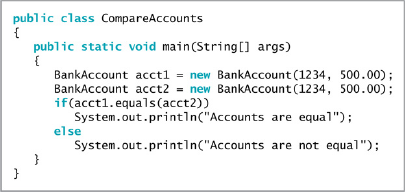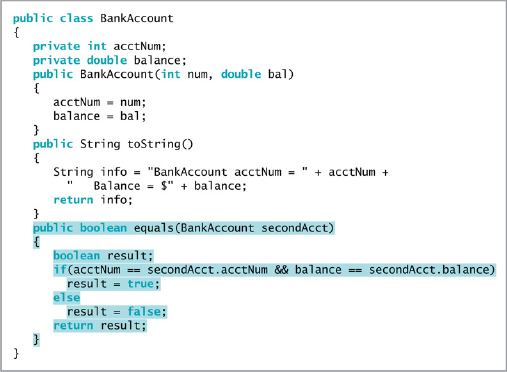Exam 11: Advanced Inheritance Concepts
Exam 1: Creating Java Programs61 Questions
Exam 2: Using Data67 Questions
Exam 3: Using Methods Classes and Objects66 Questions
Exam 4: More Object Concepts66 Questions
Exam 5: Making Decisions66 Questions
Exam 6: Looping66 Questions
Exam 7: Characters Strings and the Stringbuilder68 Questions
Exam 8: Arrays66 Questions
Exam 9: Advanced Array Concepts66 Questions
Exam 10: Introduction to Inheritance66 Questions
Exam 11: Advanced Inheritance Concepts66 Questions
Exam 12: Exception Handling66 Questions
Exam 13: File Input and Output66 Questions
Exam 14: Introduction to Swing Components66 Questions
Exam 15: Advanced Gui Topics66 Questions
Exam 16: Graphics66 Questions
Select questions type
Which of the following is NOT true regarding abstract methods?
(Multiple Choice)
4.9/5  (42)
(42)
public abstract class Car
{
private String model;
public abstract void color();
public String getName()
{
return model;
}
public void setName(String carModel)
{
model = carModel;
}
}
Using the code above, would it be possible to create a class in which you declare a Car object with the statement Car myCar = new Car("Honda"); ?
Explain why or why not.
(Essay)
4.8/5  (25)
(25)
When you create a new subclass in Java, neither the superclass source code nor the superclass ____ is changed.
(Multiple Choice)
4.9/5  (41)
(41)
public class Animal
{
}
public class Animal extends Object
{
}
The two class declarations above have identical outcomes. Explains why this is the case.
(Essay)
4.8/5  (32)
(32)

 The equals() method returns a boolean value indicating whether two objects are equal. Using the above code, will the two BankAccount objects be equal? Explain why or why not.
The equals() method returns a boolean value indicating whether two objects are equal. Using the above code, will the two BankAccount objects be equal? Explain why or why not.
(Essay)
4.7/5  (34)
(34)
Showing 61 - 66 of 66
Filters
- Essay(0)
- Multiple Choice(0)
- Short Answer(0)
- True False(0)
- Matching(0)